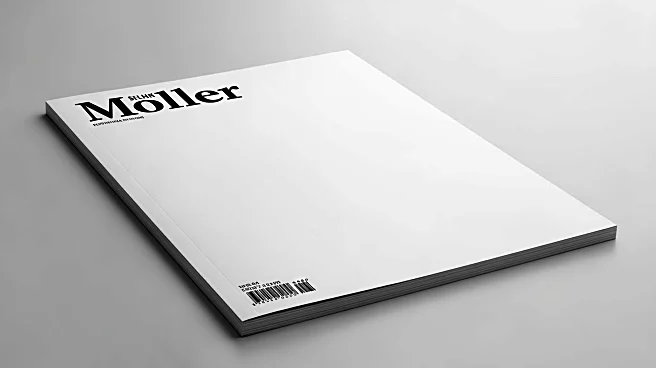What's Happening?
Time Magazine has released a new cover photo of President Trump after he criticized the previous image as unflattering. The initial cover depicted Trump from a low angle, which he described as the 'worst of all time,' noting that it made his hair appear
'disappeared' and likened it to a mugshot. The revised cover presents Trump in a more favorable light, seated in the Oval Office with a composed expression. The change comes after Trump expressed dissatisfaction with the portrayal, leading to speculation about the magazine's motives, possibly influenced by its owner, Marc Benioff.
Why It's Important?
The alteration of the Time Magazine cover highlights the sensitivity surrounding public image for political figures, particularly President Trump, who is known for being image-conscious. This incident underscores the influence media portrayals can have on public perception and the potential impact on political narratives. The magazine's decision to revise the cover may reflect broader media dynamics and the pressures of maintaining relationships with influential figures. It also raises questions about editorial independence and the role of media in shaping political discourse.
What's Next?
The revised cover may lead to further scrutiny of media practices and their interactions with political figures. It could prompt discussions on the ethical considerations of altering portrayals based on external feedback. Media outlets might face increased pressure to balance editorial integrity with the demands of high-profile subjects. Additionally, this incident may influence how future political figures approach their public image and interactions with media.
Beyond the Headlines
This situation may have deeper implications for media ethics and the relationship between press freedom and political influence. It highlights the potential for media outlets to be swayed by powerful individuals, raising concerns about the integrity of journalistic practices. The incident could contribute to ongoing debates about the role of media in democracy and the importance of maintaining unbiased reporting.















